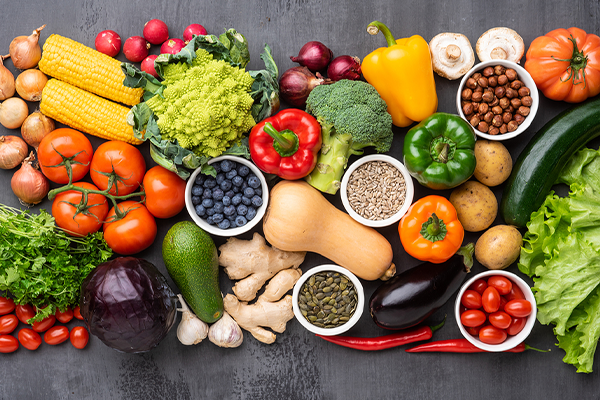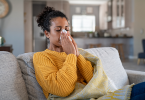It’s a waxy substance that most of us know this about: “Well, it’s bad for you.”
But when it comes to cholesterol? That’s not quite the whole story.
Did you know?
Your body makes cholesterol.
Yes, our liver and intestines actually make all the cholesterol we need, using fat, sugar and protein. “Cholesterol is a literal building block for our bodies, strengthening our cell membranes, making important hormones like estrogen and testosterone and helping our metabolisms work properly,” said Dr. Carlos Isales, an endocrinologist at Augusta University Health. But cholesterol is also in the food we eat, and it’s when we get too much dietary cholesterol that we can get into trouble.
Did you know?
Cholesterol from food isn’t created equal.
Extra cholesterol from food circulates in our bloodstream. But since cholesterol is a fat and fats don’t mix with water, it can’t travel alone. So our bodies pair cholesterol with a protein partner that, in essence, gives it a ride. “These are called lipoproteins, and there are several kinds,” said Isales.
The bad guy is low-density lipoprotein (LDL), which deposits cholesterol in our tissues and arteries, leading to plaques that could cause a heart attack. The good guy is high-density lipoprotein (HDL), which scavenges other cholesterol particles in the blood and carries everything back to the liver where it can be excreted.
Did you know?
You can change your cholesterol levels with diet and exercise.
We need some fat in our diet to help us make the cholesterol we need. But certain fats lead to LDLs (bad), while others lead to HDLs (good). So what we should do is eat more foods that boost HDLs. That includes olive oil, beans, whole grains, high-fiber fruit like apples, fatty fish like salmon, nuts, avocado, and soy-based products like tofu or edamame.
What to eat less of? Meat, dairy, coconut oil, fried foods, pastries and baked goods, and processed foods all raise LDLs and can lower HDLs—a double whammy.
An easy way to remember is to think about what foods include fat that is solid at room temperature and to eat less of those foods. “And always read food labels and aim for items with less saturated fat or trans fats,” said Isales.
When it comes to exercise, you need the vigorous aerobic kind—the kind that makes you sweat and raises your heart rate. If you have a job where you spend most of the day sitting, try to move at least once every 30 minutes—or 15 if you can—by standing up, getting some water, or walking to talk to a coworker instead of calling. Have an office with a closed door? Add in some jumping jacks or other exercise. After hours, walk, bike, swim, take a class—“Being active should be an important component of what you do every day,” said Isales.
Did you know?
You can have high cholesterol even if you diet and exercise.
“It’s important to know your family history,” said Isales, “say if a close male family member had a heart attack before age 55 or a female member before the age of 65.”
That could mean that genetically, you’re also at a higher risk for heart attack, even if you eat a healthy diet and exercise regularly.
For these people—as well as those who struggle with lowering cholesterol through diet and exercise—medications like aspirin or statins can help reduce risk of heart attack.
Did you know?
Cholesterol is a small part of a much bigger picture.
“The trend in the past was to focus just on cholesterol,” said Isales. But that ignored the impact of your total diet, including both sugar and fat. Long-term studies are looking now at diets like Atkins or keto that emphasize high protein or fat and what their impact could be on heart health.
It’s also important to know other compounding factors that could increase your risk of high cholesterol. This includes diabetes, smoking, high blood pressure, even lack of sleep. If you don’t manage these diseases, continue to smoke and have poor sleep habits, all of that can boost inflammation in the blood vessels, which is what attracts cholesterol.
In other words, it’s both the things you do (like diet and exercise) and the things you don’t do (like not quitting smoking) that can impact your overall heart health. Which is really why cholesterol matters in the first place.





